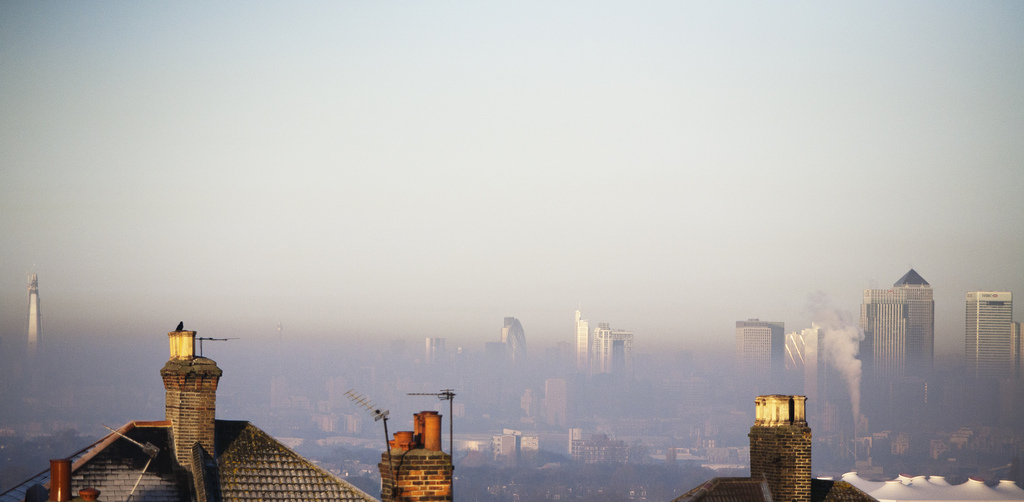
It is a sunny April Saturday and I’m running late to an event. This itself is not remarkable – but this time it is because the street I’m looking for in Lambeth is not marked on my map. When I find the launch for Switched On London, I discover I’m not the only one puzzled by the new developments that seem to have surfaced like mushrooms after rain.
Myatts Field estate is currently the focus of a major regeneration programme, part of Lambeth Council’s efforts to rebrand the area as the ‘Oval Quarter’. As part of that, residents have been locked into a contract with the multinational energy company E.ON.
Tina Anderson tells the crowd of over 60 people who have gathered in the estate’s community centre that of all the energy providers she has seen, E.ON is by far the worst. She has lived on Myatts Field for 33 years.
“You get no compensation unless the cut has been 24 hours. On Christmas day the whole estate was without hot water for most of the day. Imagine it, you’ve got all your washing up, you’ve got guests – and freezing cold water!”
Previously, the estate had a centralised heating system. But the consortium overseeing the development is now installing single boilers despite the higher cost that brings to residents, many of whom are already in fuel poverty.
“Lambeth Council doesn’t care. We’ve got people in absolute poverty having to choose whether to eat or pay their bills. This is 2016; this is not what was supposed to happen with ‘improving our lives’.”
This energy injustice is the reason Switched On London is launching its campaign for a publicly-owned, democratic energy company here. Its proposal could provide a solution for Myatts Field residents and the rest of London – and do its bit for the planet, too.
1. Energy is a common good.
Fuel poverty is one of the social issues that brings the UK to shame. As Archie Davies wrote on Novara Wire in 2015, the profits of the Big Six energy companies have risen ten-fold since 2007 whilst a million people in London live in fuel poverty.
Energy should be regarded a common good, not sold for profit. Switched On London wants an energy company that offers fair, affordable prices based on a progressive pricing system, and which doesn’t cut off access when people can’t pay. It would re-invest revenues in improving household energy efficiency.
2. Energy needs to be controlled by the people.
Public ownership doesn’t automatically mean the public has any say in how a business is run – think of RBS, a bank which is over 80% public-owned, and after the bailouts has continued to profit the few rather than the many.
This is why Switched On London has detailed proposals for how to maintain democratic control over the company: the board of directors would be made of London public officials, employees elected by the whole energy company workforce, and democratically-elected London residents – one third each. The board would be obliged to discuss public petitions signed by 1% of London’s population, while the backing of 5% would trigger an online referendum of any proposal. There would also be annual open assemblies in every London borough.
3. Energy needs to be decarbonised.
Socially-just energy also has to be renewable, as the effects of climate change fall disproportionately on women, people of colour and those in poverty. We don’t have much time to prevent the disastrous effects of climate change spreading even further across the planet. This is why it is vital to have an energy company that can drive the transition into a carbon-free future.
4. Energy needs to be decolonised.
Switched On London has also switched on to the impact energy production for our needs has on the wider world. At the launch, Hamza Hamouchene from the Algeria Solidarity Campaign speaks of land grabs for large-scale solar farms and how fracking is being pushed in Algeria to supply Europe with energy.
Affordable energy also fights structural inequality at a local level. As Salahuddin from Muslim Action on Development and Environment says, ethnic minorities are disproportionately affected by fuel poverty. This is why campaigns and materials have to be accessible to communities in their own languages.
5. How to get there.
Switched On London has been endorsed by various organisations and unions. The campaign only started late last year and its first big task was to get London mayoral candidates to endorse the proposal – which they all did, to different degrees. Now Switched On will be putting pressure on Sadiq Khan.
“We will be saying now you have to follow through setting up a public energy company, but crucially also making sure that it is as progressive and transformative as we want,” Mika Minio-Paluello from Platform tells me.
“That involves putting pressure on particular decision-makers but also building the movement outside and in communities. And having community energy forums where we are on the ground talking to different folks, and having people say this is how energy is relevant to my life and this is what I want, this is what works for me. And using that to clarify what we are pushing for.”
Let’s hope we see a democratically run, public energy company before too long. But by demanding it, Switched On is already promoting social justice through speaking in the voices of those most urgently affected by energy injustice.
Photo: Stu Mayhew/Flickr
–
If you want to support media for a different politics, you can donate or subscribe to Novara Media at support.novaramedia.com.